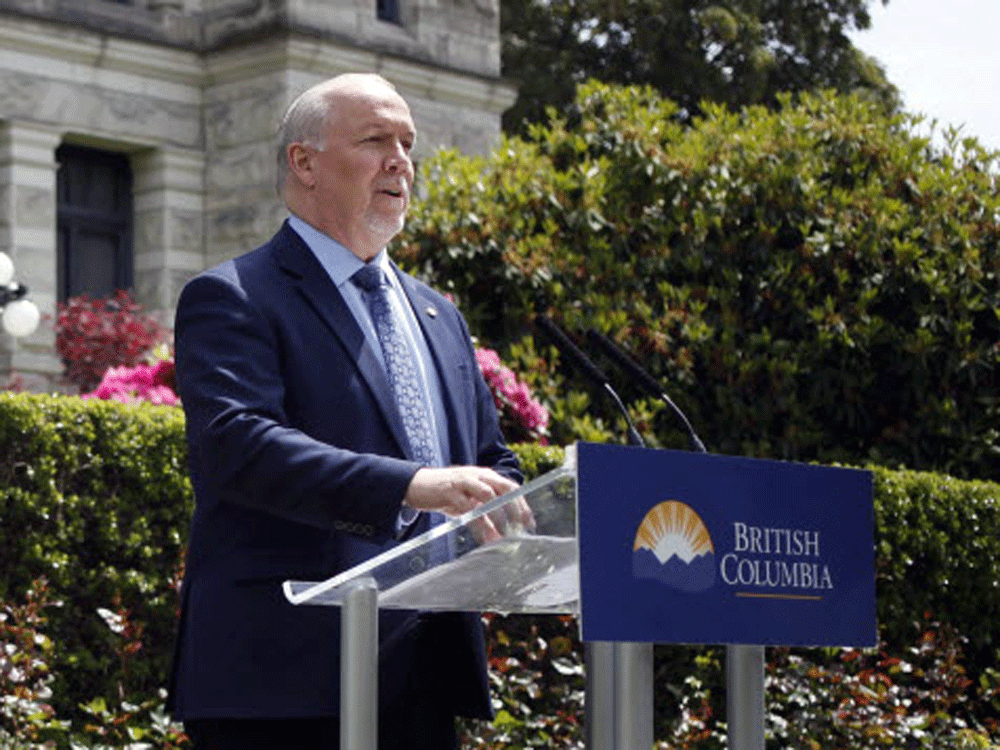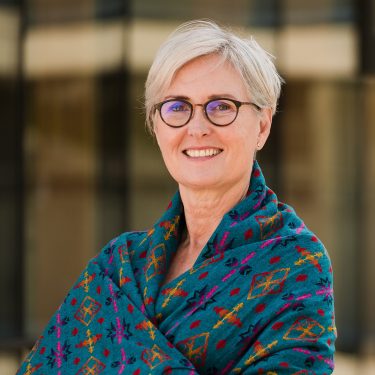DESIBUZZCanada
Events Listings
Dummy Post

International Day Of Yoga To Be Virtually Celebrated Saturday At 4pm

CANCELLED: Coronavirus Fears Kills Surrey’s Vaisakhi Day Parade

ADVERTISE WITH US: DESIBUZZCanada Is The Most Read South Asian Publication Online

SURREY LIBRARIES: Get Technology Help At Surrey Libraries

WALLY OPPAL: Surrey Police Transition Update On Feb. 26

GONE ARE THE DAYS - Feature Documentary Trailer

Technology Help At Surrey Libraries

Birding Walks

Plea Poetry/short Story : Youth Contest

International Folk Dancing Drop-in Sessions
No Firings Or Discipline So Far Of BC Health Officials Involved In Playing “Racist Games” Targeting Indigenous People
- June 20, 2020
Indigenous Health Leaders Say Racism By Hospital Staff In British Columbia Unacceptable!


In a recent training session, a program participant disclosed a common game played within B.C. hospital emergency rooms, where physicians, nurses and other staff try to guess the blood alcohol concentration (BAC) of Indigenous patients. The winner of the game guesses closest to the BAC - without going over. Despite these allegations, no one has been fired or disciplined as Premier John Horgan weighed in, saying such racist conduct was unacceptable.
By R. Paul Dhillon
VICTORIA –First Nations, Métis and Inuit patients seeking emergency medical services in British Columbia are often assumed to be intoxicated and denied medical assessments, contributing to worsening health conditions resulting in unnecessary harm or death, according to information obtained by Métis Nation BC and the BC Association of Aboriginal Friendship Centres.
Additionally, the parties have notified the First Nations Health Authority of this concern.

Participants within the San’yas Indigenous Cultural Safety Training program detail thousands of cases of racism in healthcare, resulting in the harm of Indigenous patients. In a recent training session, a program participant disclosed a common game played within B.C. hospital emergency rooms, where physicians, nurses and other staff try to guess the blood alcohol concentration (BAC) of Indigenous patients. The winner of the game guesses closest to the BAC - without going over.
“There remains a lack of will to address systemic and specific racism towards Métis, First Nation and Inuit people,” says Leslie Varley, Executive Director of the BC Association of Aboriginal Friendship Centres (BCAAFC), “We know that our people avoid hospitals because we are afraid of having a discriminatory encounter. This happens to the point where Indigenous people end up in emergency with extreme diagnosis, like cancer.”
“What is allegedly happening in BC hospitals to Métis, First Nations and Inuit peoples is deeply disturbing and must immediately come to an end” says Daniel Fontaine, Chief Executive Officer for the Métis Nation BC. “We remain committed to work with Provincial Health Services Authority to increase
Despite these allegations, no one has been fired or disciplined as Premier John Horgan weighed in, saying such racist conduct was unacceptable.
"I am outraged by reports of ugly, anti-Indigenous, racist behaviour at multiple health-care facilities in B.C.,” Horgan said.
"This behaviour degrades the standards and provisions of health care in our province. It cannot stand. There is no excuse. There is no explaining this away.
"No one should fear discrimination when they need help the most. No one should worry that when they visit a hospital that they will be prejudged and given a lower standard of care. If confirmed, this is a heartbreaking example of systemic racism in our province.
"This will not be swept aside. We will not look the other way when racism is exposed. We will get a full account and changes will be made," Horgan concluded
Health Minister Adrian Dix was also disturbed by the allegations and said he is taking immediate action.
"Last night, I was made aware of serious allegations of racist and completely abhorrent practices in an emergency room or emergency rooms in B.C. If confirmed, this conduct is beyond unacceptable. The allegation is that a game was being played to guess the blood-alcohol level of patients in emergency rooms, with Indigenous peoples and perhaps others.
"If this is true, it's intolerable, unacceptable and racist. Actions like this profoundly affect patient care. This requires, in my view, an immediate and swift response.

"I contacted Mary Ellen Turpel-Lafond and asked her to lead the investigation of this issue. I think she has the credibility to do that and will do an excellent job. Foundational to our ongoing work of reconciliation are the voices of Indigenous leaders.
"I consider these allegations to be very serious and we have to assess the facts, and that requires an investigation to take place. And I know we must also take action.
"As an independent investigator, Ms. Turpel-Lafond will work to determine the facts of these specific allegations. We need to get to the root of these problems, and that begins with an understanding that racist attitudes and actions have a real and devastating impact on health outcomes, creating trauma that can affect generations. She will help determine the prevalence of these attitudes and actions at a systemic level in our health-care system.
"Everyone who comes to our hospitals deserves and should be able to expect access to respectful and culturally safe care.
"We are committed to continuing the work and engagement that brought these reports forward, and will be working together with Indigenous health and community leaders on next steps."
Mary Turpel-Lafond currently practises as senior associate counsel at Woodward and Company. She brings her extensive experience in the field of Aboriginal law to her current practice, in which she appears at all levels of court on cases relating to land claims, Indigenous and human rights matters, and public law litigation. She is a tenured full professor of law at Peter Allard Hall School of Law at the University of British Columbia (UBC), director of UBC's Residential School History and Dialogue Centre and served as a Saskatchewan provincial court judge for 20 years.
Aboriginal leaders say Ontario made San’yas training mandatory for every employee in their province’s Public Service in 2016. The Province of B.C. has yet to enforce standardized anti-racism training for health service workers. BC Health Authorities are inconsistent in their requirements for anti-racism training despite evidence that racism is prevalent within health systems. Cases of systemic and racialized harm and death continue to be looked at as a medical learning opportunity.
BCAAFC and MNBC, Indigenous leadership are calling upon the Ministry of Health to accept the following four recommendations:
- A public inquiry into Indigenous specific racism in health care in B.C with a focus on hospitals and emergency departments.
- Ensure that all front-line staff are required to take mandatory First Nations, Métis and Inuit training that results in increased health professional personal accountability in the delivery of safe health care.
- Commit to structural and systemic changes to dismantle indigenous specific racism to ensure culturally safe health care experiences for Indigenous people.
- Ensure that Indigenous governments play a stronger role in the development and implementation of anti-racism programs and training throughout BC.
Implementing these recommendations helps address the Truth and Reconciliation Commission of Canada’s Calls to Action and would signify the beginning of concrete changes within the Province of B.C.’s health system.
MNBC and BCAAFC agree the way for the Province of BC to properly acknowledge National Indigenous People’s Day on June 21st would be to address the longstanding racism concerns of Métis, First Nations and Inuit people in our province.
MNBC and BCAAFC agree the way for the Province of BC to properly acknowledge National Indigenous People’s Day on June 21st would be to address the longstanding racism concerns of Métis, First Nations and Inuit people in our province.
A coalition of BC Health Authorities if the allegations are f true, this activity would be evidence of systemic racism and discrimination, underscoring the significant health disparities Indigenous people in our province experience.
“We take reports of this nature extremely seriously. To be clear: discriminatory behaviour in any B.C. health care facility is unacceptable and violates our principles, policies and values.
“We fully support the provincial investigation Minister Adrian Dix announced today and are committed to working with the Ministry of Health and Mary Ellen Turpel-Lafond on this issue.
“Indigenous leaders have provided us guidance and support to eradicate racism in B.C.'s health system and we know there is still much work to do. We remain actively engaged with Indigenous partners on immediate and longer-term action plans to combat anti-Indigenous racism. Together, we will make changes to ensure the health care system in B.C. is safe and equitable for all,” said a statement issued jointly on behalf of B.C.'s health authorities:
* Dr. Victoria Lee, president & CEO, Fraser Health
* Susan Brown, president & CEO, Interior Health
* Cathy Ulrich, president & CEO, Northern Health
* Fiona Dalton, president & CEO, Providence Health Care
* Benoit Morin, president & CEO, Provincial Health Services Authority
* Vivian Eliopoulos, interim president & CEO, Vancouver Coastal Health
* Kathryn MacNeil, president & CEO, Island Health


















